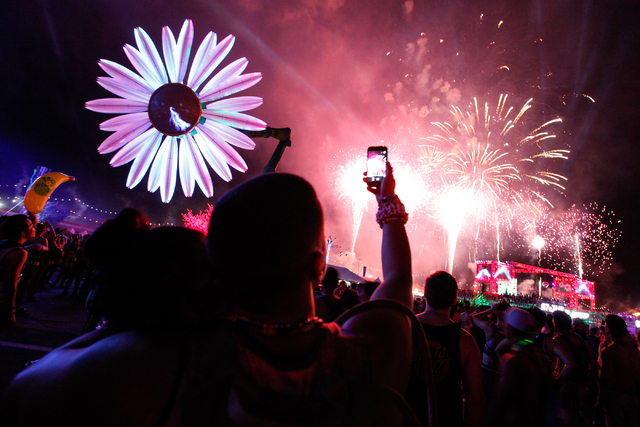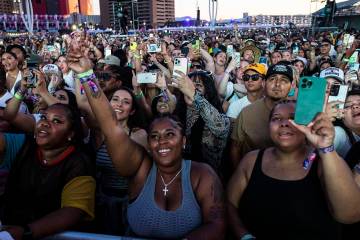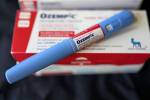Drug use at EDC topic of dance music panel — VIDEO
Drugs in dance music: it’s time to talk.
“It’s a hot button issue,” says KCRW’s Jason Bentley, introducing the panel, pointedly named just that, taking place now at the EDMBiz conference at the Cosmopolitan in Las Vegas. “We didn’t ever want to go near it because of the negative connotations.”
He’s right, of course. Drugs. Dance music. For decades, nobody ever wanted to have this conversation. Everybody knows it was happening, but nobody ever wanted to talk about it, certainly not many folks from the EDM (electronic dance music) community.
But the time has certainly come. Since Electric Daisy Carnival came to Las Vegas in 2011, there have been five drug-related fatalities — and that’s on the heels of the festival’s first death, a 15-year-old girl at the Los Angeles edition of EDC in 2010. You’ve seen all the headlines. They’ve been inescapable.
If you noticed, though, only one of those tragic incidents occurred on site, which speaks to the notion that Insomniac, the festival’s promoter, has been actively working to address the problem — which, as Mark Lawrence, Association for Electronic Music’s chief executive, astutely points out, “It’s not a dance music problem. It’s a society problem.”
Indeed. But it’s obviously remiss to deny the effect that drugs have had on the dance scene. And so here we are, seated in an enormous ballroom at the Cosmo an impressively well-attended (and organized) conference presented by Insomniac Events, talking about drugs and the dance scene. Openly. Honestly.
“Is it time for us to set our own standards,” asks moderator Lawrence, acknowledging that EDC is one of the larger events with the resources to tackle this issue head-on,”and help bring those at the smaller end of events up to the higher end?”
The question isn’t rhetorical, but it certainly could be.
Setting a standard is long overdue, and EDC’s leading the way. To wit: The Las Vegas Motor Speedway is outfitted with elaborate medical care facilities, not just to tend to those imbibing illegal drugs, but to provide attendees with the best medical care possible.
Clearly, smaller shows and festivals across the country (or “raves,” if you prefer) can’t afford these sort of luxuries — and may never have those resources. That’s why it’s not as much about infrastructure. It’s not even necessarily about advocating abstinence. It’s about dialogue. Frank, direct discussions like this one we’re listening to now at EDMBiz. That’s the only way that the stigmas — ones that could possibly be preventing those who need help from seeking it — will begin to be dismantled.
“From the promoter’s perspective, the most heartbreaking thing that happens is when we wake up in the morning probably about three and a half hours after the festival,” says panelist Maren Steiner, Insomniac’s Director of Health & Safety, “and we read about a bad outcome. Then later in the day when I research heavily, everything you can possibly figure out: What happened to this person? What did this person take? What were the circumstances around it? How did this person get to the festival? How did they leave the festival? And what time did all this happen?
“And a lot of times what happens is, you know,” she goes on, “they went home with friends, they didn’t feel good — there was something wrong with them — their friends physically carried them to the car; their friends physically carried them to bed; they wrapped them up and said, ‘See you later’ and took off.
“Doctor Dale and I,” she continues, referring to Dr. Dale Carrison, chairman of emergency medicine, who assists with EDC, “and the entire medical team — and I think I speak for any promoter — it’s heartbreaking because we want to help you. There is no police officer, no paramedic, no physician or no nurse, in America or the world, who doesn’t want to help you.
“And the hardest part is getting folks to speak up and say, ‘Hey, my friend needs help,’ or ‘Hey, I need help,’ Or ‘I’m not going to put my friends to bed because there’s a chance they might not wake up in the morning.’ Those people’s friends have to live with that the rest of their lives.
“And should a 19-year-old have to live with the guilt of that for their entire life, and should parents have to bury their children? The answer is no. Never, if it can be avoided. There’s so much of this stuff that can be avoided. If people would just see something and say something.”
Do you feel that? It’s the paradigm shifting. No more heads in the sand.
Read more from Dave Herrera at bestoflasvegas.com. Contact Dave at dherrera@reviewjournal.com.




























